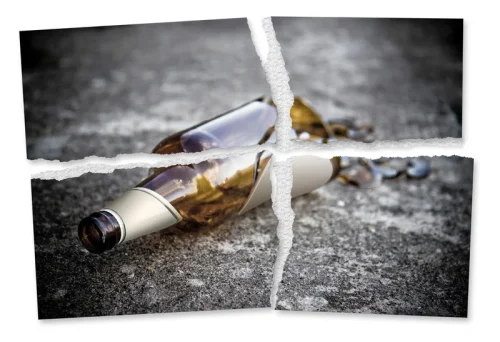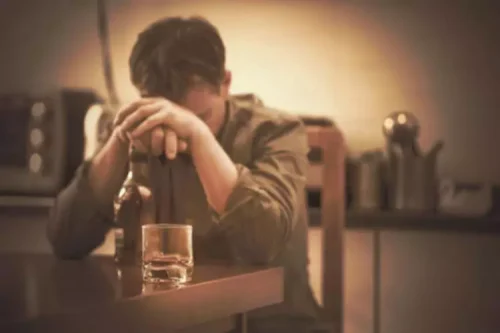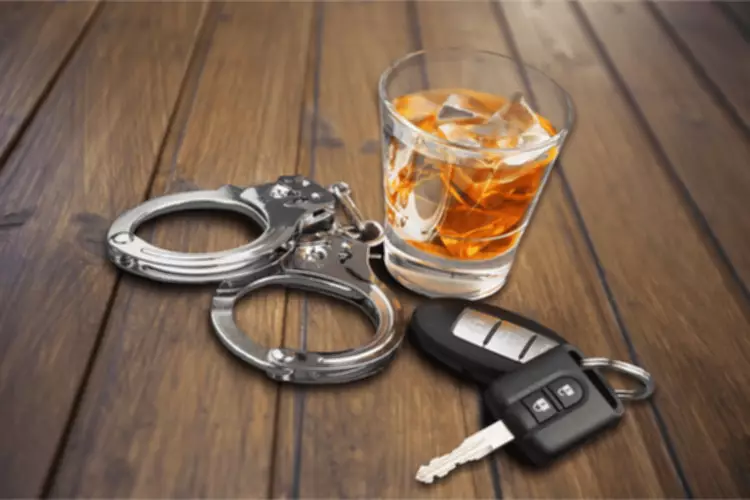
It has a sedative effect that helps you relax and makes you drowsy, so you fall asleep faster. Research shows that between 33% and 40% of people who consume alcohol experience mild to severe anxiety. Anxiety symptoms can cause or worsen insomnia for some individuals. Having a beverage containing alcohol in the evening from time to time may slightly disrupt sleep, but consuming alcohol for multiple nights in a row or every night carries a greater risk of insomnia. People who drink alcohol before sleep are also more likely to experience breathing difficulties at night. They will also experience shorter periods of sleep, resulting in less restful sleep overall.
How Long to Wait Between Drinking Alcohol and Bedtime
Sleep disturbances disrupt hormonal balance, which affects body temperature regulation. Elevated cortisol levels can contribute to feelings of irritability, anxiety, and overall stress and increase the risk of long-term health problems. The effects of alcohol on these neurotransmitters is sedative, which is why alcohol initially makes you relaxed and drowsy and may help you fall asleep more easily. When you drink alcohol, it’s absorbed through the stomach and small intestine and moves into your bloodstream. It can wake you up in the night, trigger sleep disorders, and mess with different stages of sleep — just to name a few impacts. Even if alcohol helps you feel drowsy, you can develop a tolerance to the sedating effects.
If you want to drink less but worry you’ll miss out on happiness, this exercise could help.

This can worsen sleep apnea symptoms by causing your airway to be more likely to collapse while sleeping. Alcohol also relaxes your breathing muscles, which can exacerbate breathing problems for someone with sleep apnea, as well as induce symptoms of sleep apnea, like snoring, in people without the condition. Moreover, as the alcohol metabolizes and leaves your system, you’re more likely to wake, resulting in less restorative sleep throughout the night. CBTi is recommended as the best starting point for treating insomnia that has lasted more than four weeks (chronic insomnia).
What is insomnia?

More than 70% of those with alcohol use disorder (AUD) also experience alcohol-induced sleep disorders, such as insomnia, according to scientists in a 2020 review. Regular drinking has also been linked to shorter periods of rapid eye movement (REM) sleep, a disrupted circadian rhythm, and snoring. People with insomnia often wake up tired and struggle with poor memory or concentration. Bringing attention to our habits is always the first step in changing them.
- This episode of The Verywell Mind Podcast, featuring neurologist and sleep expert Chris Winter, shares strategies for sleeping better at night.
- Pay attention to your body’s cues and modify your nighttime eating habits.
- Too much alcohol can affect your sleep but you may benefit from a small drink before bed.
- Research shows the more alcohol-related sleep disruption you have, the worse your hangover can be.
- This type of behavioral therapy works to improve your sleep efficiency, or the time you spend asleep divided by the time you spend in bed.
How Alcohol Affects Sleep
A newer study found that one dose of alcohol had no effect on the circadian rhythm in rodents. However, the researchers proposed that perhaps these effects on the circadian rhythm are only seen after several consecutive days of alcohol consumption. In support of the alcohol-melatonin connection, researchers have noticed that individuals suffering from severe alcohol withdrawal tend to have less pronounced melatonin levels and release.

Does alcohol cause insomnia or poor sleep?
If you have an inkling that alcohol could be affecting your sleep, Conroy recommended conducting self-experimentation. Sleep is essential for consolidating information learned throughout the day and performing https://ecosoberhouse.com/ daily tasks. Sleep disruptions from alcohol consumption can harm your overall health and well-being. Alcohol may make you fall asleep initially, but it is definitely not a viable sleep aid.
Programs that teach meditation or mindfulness may combine the practices with other activities. Mindfulness-based cognitive therapy integrates mindfulness practices with aspects of cognitive behavioral therapy. Depression and alcohol have a delicate relationship, as many people with depression also have trouble with drinking. does alcohol help you sleep While it offers short-lived relief, alcohol makes depressive symptoms worse and makes antidepressants less effective. One suspected contributing factor to depression is low serotonin levels, the neurotransmitter that regulates mood. Going outside is one way to naturally boost serotonin levels in your brain.
It Delays and Diminishes REM Sleep
The more alcohol your drink and the closer you drink it to bedtime, the stronger its effects will be. “After a few months, the brain will begin to return to health,” says Dr. Abramowitz. Your sleep cycle is continuing to improve, so you’re getting even more REM sleep and feeling more rested. Going outside will also help improve your sleep by «resetting» your internal clock, which promotes normal sleep patterns. Melatonin is the hormone that helps regulate our circadian rhythm, known as the sleep-wake cycle. Our brains produce melatonin in response to darkness to facilitate sleep.
